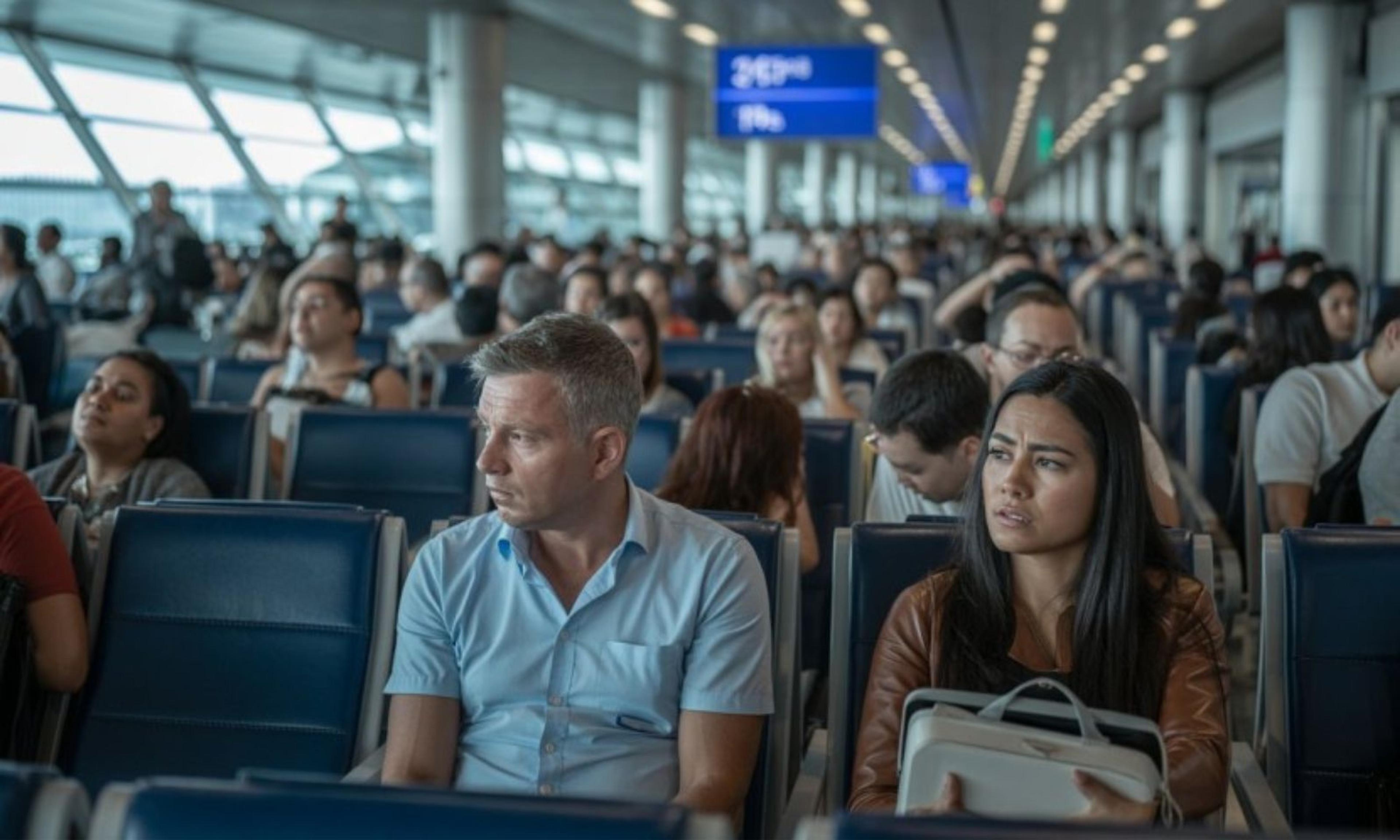

A retelling of the siege of Ō-Rākau in the Waikato land wars, the film Ka Whawhai Tonu releases in NZ cinemas, 27 June.
Photo/Supplied
Ka Whawhai Tonu: New film brings love to a story of ‘struggle without end’
A film about a crucial battle from the Waikato region as Māori desperately try to resist the British Imperial Army.
It’s a story of survival, coursing with cultural conviction, grit and promise, and told through emotionally captivating performances from a talented mix of newcomer and esteemed actors.
Set in the Māori-Colonial wars of the 1860s, the film Ka Whawhai Tonu is an action-adventure reo Māori film about how a young half-caste soldier boy, Haki, and a Māori girl prophet, Kōpū, strike up an unlikely friendship then struggle to rescue each other and lead a group of tamariki to safety.
With a star studded cast including Temuera Morrison, Cliff Curtis, and Miriama Smith alongside standout rising stars Paku Fernandez as Haki and Hinerangi Harawira-Nicholas as Kōpū, New Zealand’s latest Māori film is set to “anger and inspire” audiences, according to the film’s Director Michael Jonathan.
“The biggest theme in the film is about aroha - love. It makes people love again,” says director Michael Jonathan (Tainui, Mātaatua, Te Arawa).
"You can expect all the kind of senses working together to make people cry, and laugh, and get angry. Just get angry and cry again." he says.
Jonathan, who is making his directorial debut with this production, says while the film is a “faithful portrayal of true events” the fictional story of Haki and Kōpu is a deliberate focus to encompass as many “real” characters as possible.
A portrayal of true events
From July 1863 to April 1864, the Waikato region saw relentless onslaught by thousands of British troops resulting in the tragic loss of 2000 Māori lives.
This campaign crippled the Māori King movement and marked permanent displacement of local Māori from their ancestral territories.
The battles at Rangiaowhia and Ō-Rākau stand as poignant final chapters in the Waikato land wars and chief Rewi Maniapoto’s renowned response to colonial forces resonates to this day.
“E hoa! Ka whawhai tonu mātou, ake, ake, ake!”
(Friend! We will fight you forever, and ever, and ever!)
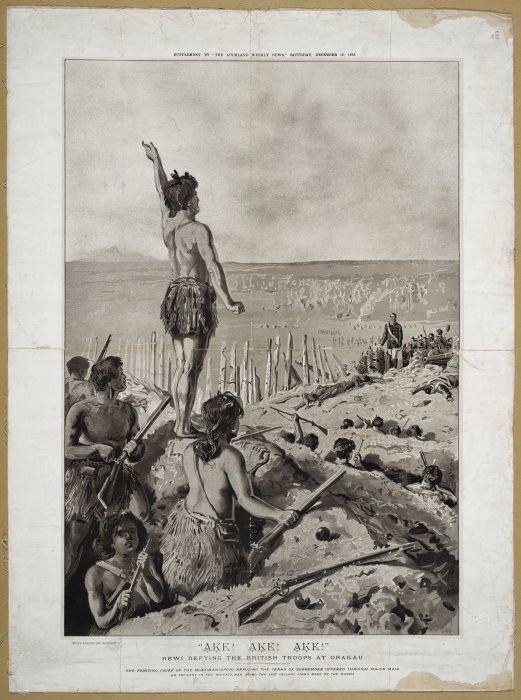
Rewi Maniapoto defying the British troops at Ō-Rākau. Photo/Wilson & Horton, 1893
Jonathan proudly acknowledges his lineage as a descendant directly impacted by the invasion of Rangiaowhia and the siege of Ō-Rākau.
“My great-great-great-grandmother and grandfather were part of that pakanga (battle) and one of them died, the grandfather died there.
“It’s not a well known story, it’s not a well-known name but it’s the story that I grew up with.
“And so keeping those sorts of stories in your head from when you’re a child and told by your dad, it means something to you, it means something to me. It’s an important pakanga.”
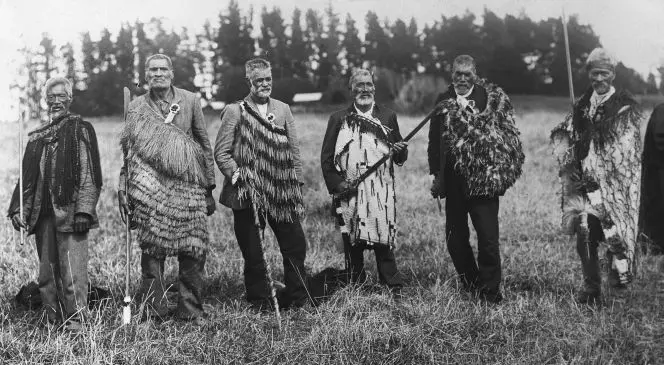
Six Ngāti Maniapoto survivors of the Ō-Rākau battle taken in 1914. Photo/James Cowan/National Library of New Zealand
This film is the third cinematic exploration of the significant battle, the first two movies, both titled Rewi’s Last Stand, which were initially released as silent films in 1925 then had sound added in 1940.
Fernandez says the contemporary perspective offers important historical knowledge for today’s generation to grasp.
“I think it’s important because heaps of Kiwis don’t really know stories of te ao Māori. I could go around and ask people about WWI, Gallipoli and stuff like that and they’d be like, ‘oh yeah, I know that’,
“But if I said, ‘well, do you know the pakanga of Ō-Rākau?’ they’d be like, ‘what’s that?’
“I just think it’s a good kaupapa to come and watch and learn about our history.”
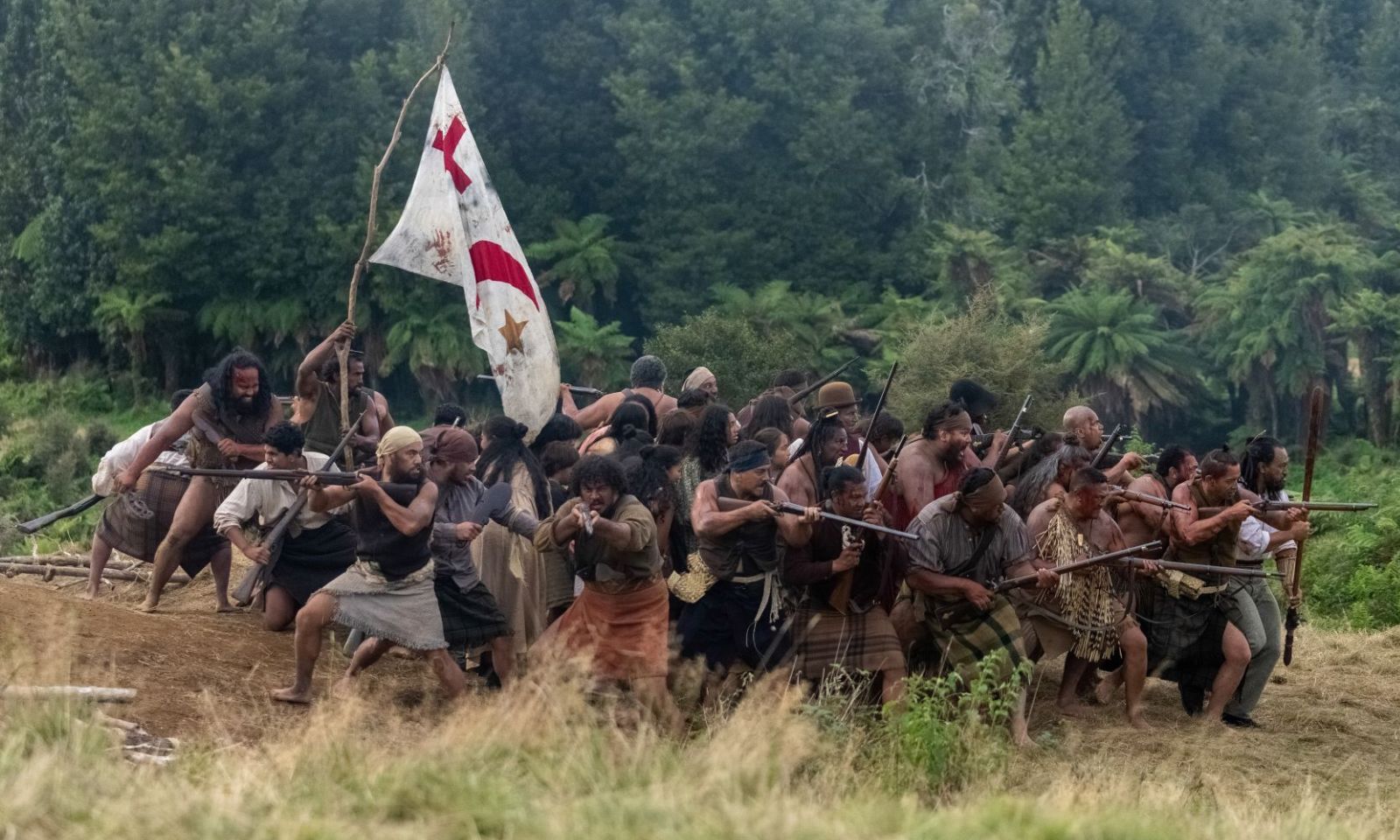
This year marks 160 years since the battle at Ō-Rākau where around 300 Māori defended their pā from over a thousand British Imperial Troops. Photo/Ka Whawhai Tonu (2024)/Supplied
Movie magic comes from people magic
But finding someone to play Haki was a particular struggle and after an “exhaustive search”, Paku Fernandez landed the lead role.
Jonathan says Paku’s energy and eyes sealed the deal.
“Paku is Haki. Paku’s the man to me.”
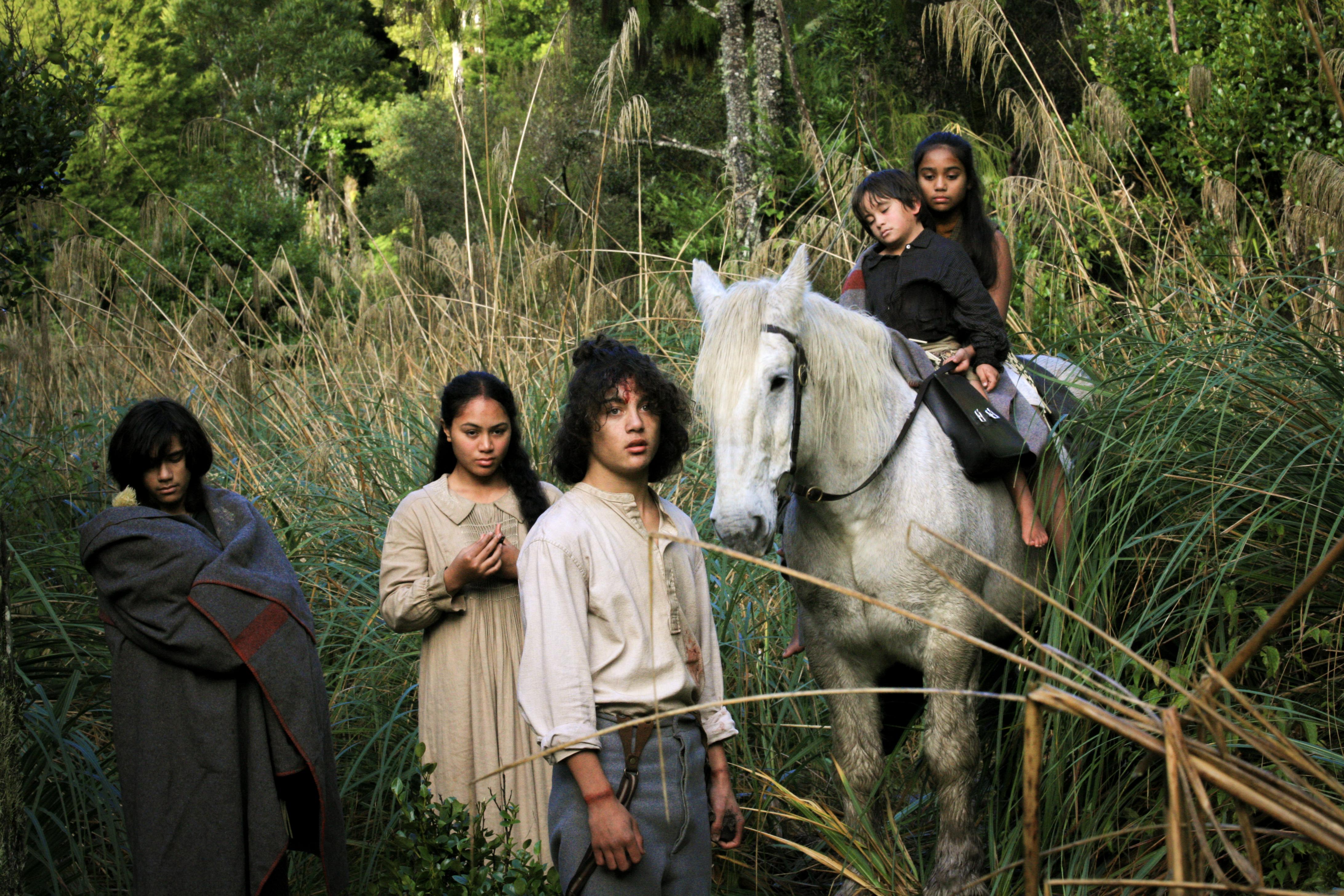
The kid cast of Ka Whawhai Tonu. Photo/Supplied
When it came to casting the “amazing” young actors Jonathan said it came down to their real-life personalities and a huge credit goes to their on-set acting coach, Bree Peters.
“She is a master at coaching the kids. I told her (what) we’re doing today and that I need them to feel like this, and she just goes, ‘yep, got it’.
“And these amazing performances would come out.”
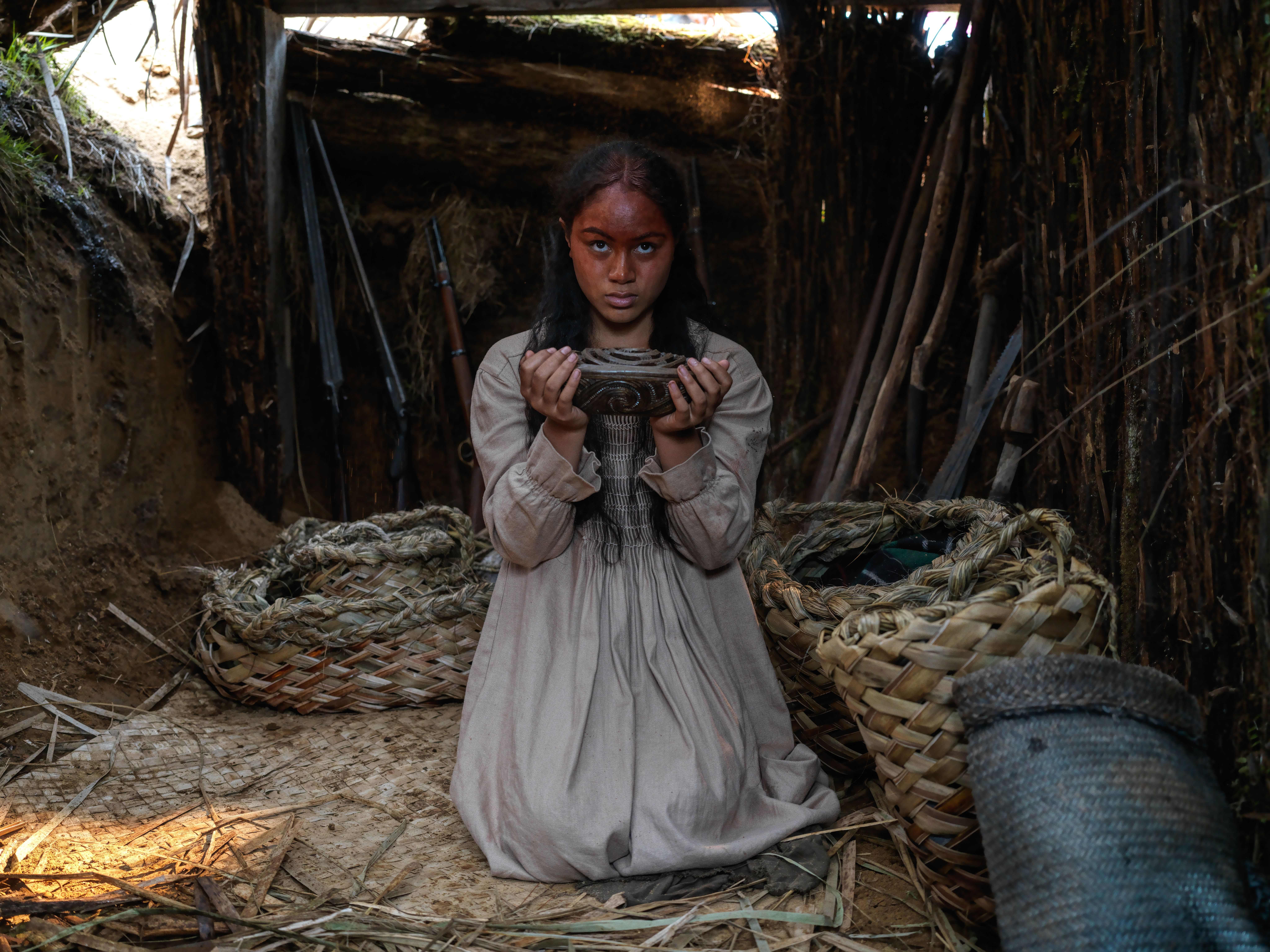
Hinerangi Harawira-Nicholas as Kōpū. Photo/Supplied
This year marks 50 years of seeing Temuera Morrison on the big screen and Jonathan says what better way to celebrate the milestone than to have him play Chief Rewi Maniapoto in the film.
“The performance by Temuera Morrison as Rewi is the most outstanding performance I’ve ever seen of Temuera. That guy is a rockstar. I know he does all the Star Wars stuff - awesome.
“That pays the bills and all that stuff but to do something as pivotal as Ka Whawhai Tonu, it’s cemented in history now that he’s this great actor.”
Fernandez says Morrison also had some wise advice for the rising star.
“I remember him saying to just be myself on set aye, and just do the mahi.”
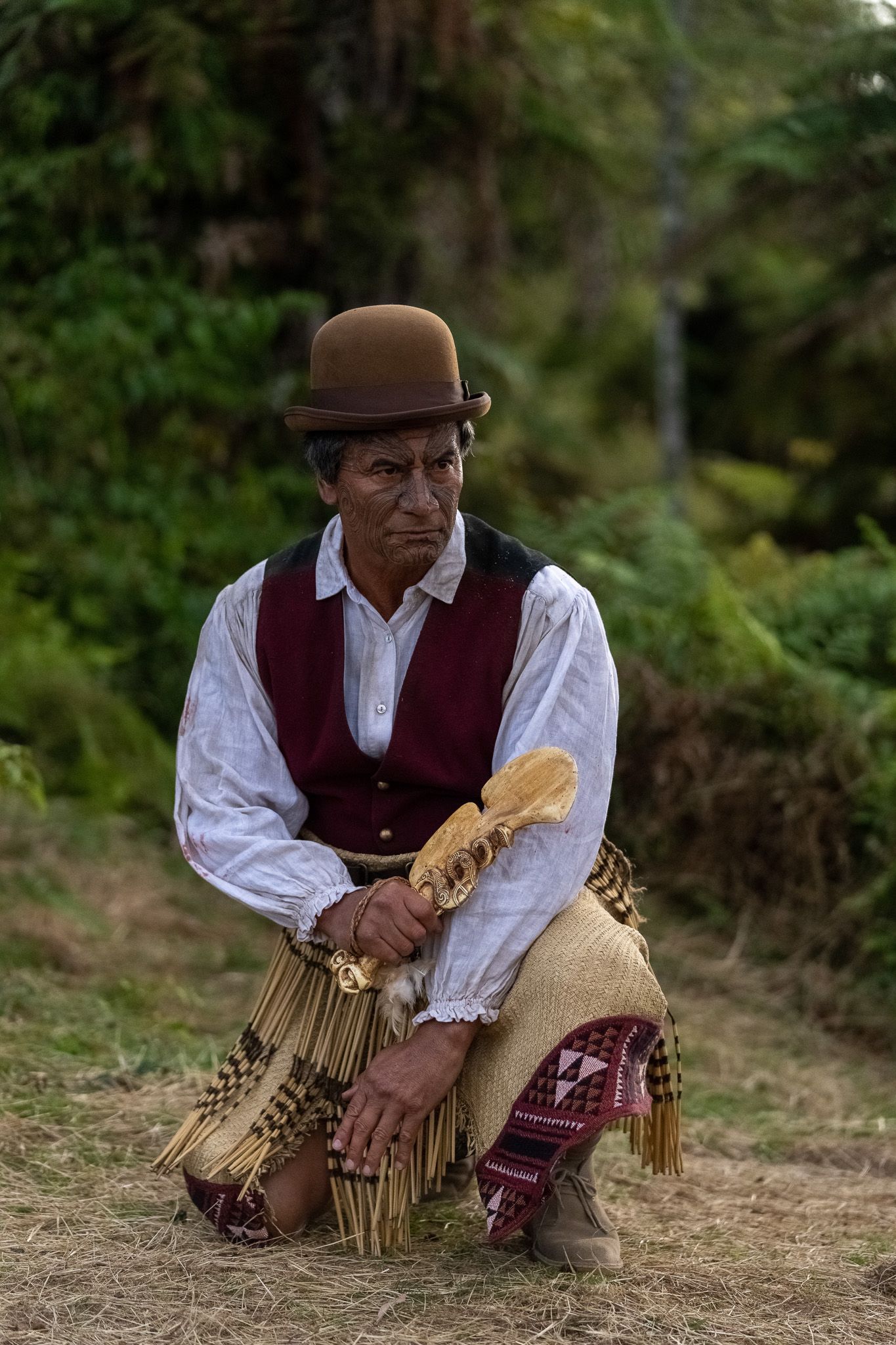
Temuera Morrison as Rewi Maniapoto. Photo/Supplied
Jonathan says the mana of the wāhine cast parallels the mana of the story and each member brings powerful elements of strength and fierceness that will move audiences.
He says Miriama Smith does a stunning portrayal of an ancestor, Hine i Turama, and a performance by Kataraina Howden-Borell is hauntingly memorable.
“Man she is just like … she plays the meanest mum I’ve ever seen. She says to me, ‘you know I’m not really mean like that aye?’
“I says, ‘I believe you, but then I believe you being this mean mum and you play it so well’.
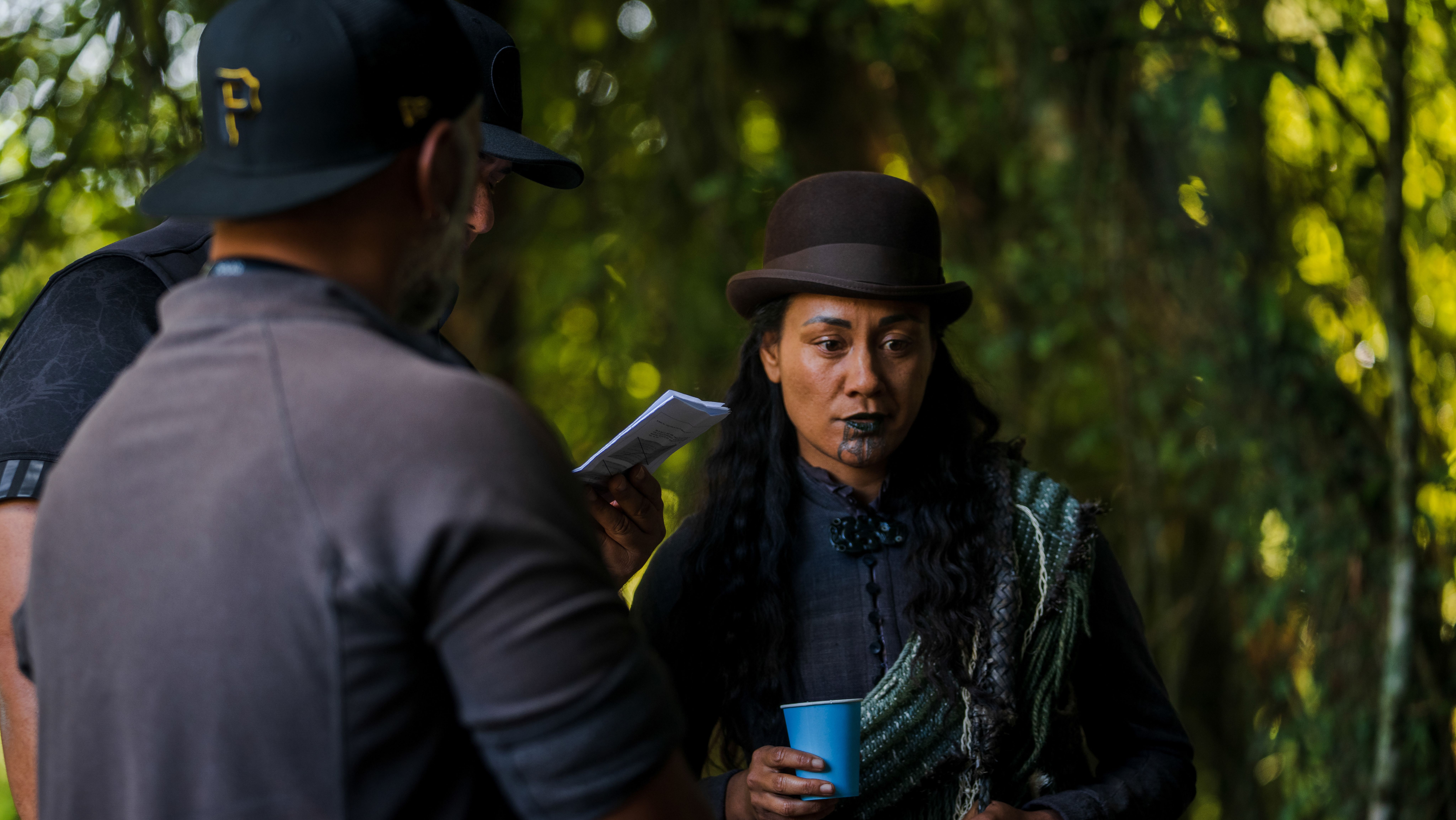
Kataraina Howden-Borrell discusses a scene with Director Michael Jonathan. Photo/Supplied
Familiar struggle and shared connection
The world premiere in Sydney earlier this month had Torres Strait Islanders and Aboriginal mobs from Australia show up in support.
Jonathan said Ka Whawhai Tonu is a story meant to be seen, heard and felt by all people who’ve endured colonialism.
“It’s one for our indigenous peoples around the world who have been in some sort of colonised pakanga (fight/battle) to inspire them that we can all do it together.”
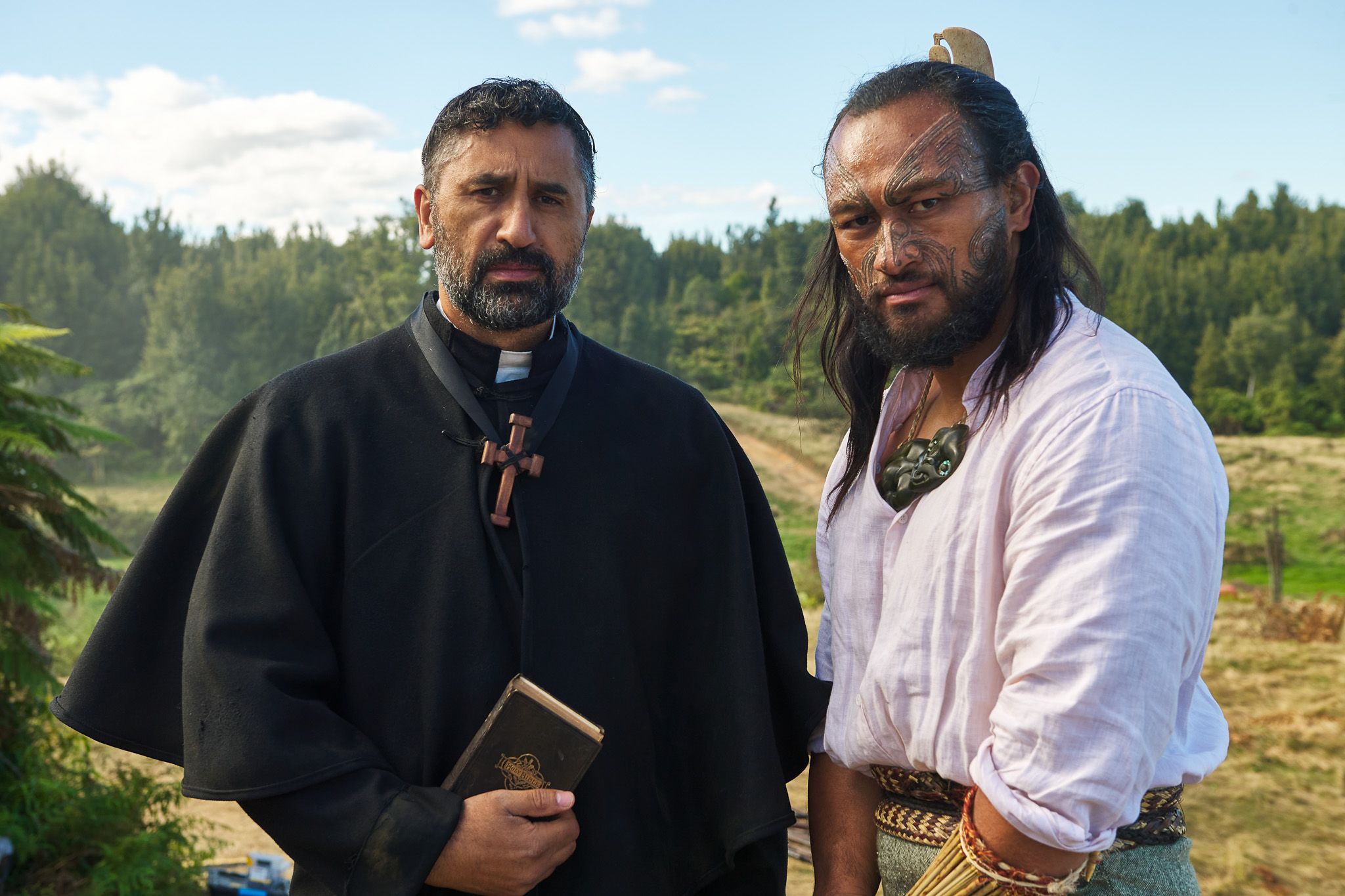
Cliff Curtis as Wi Toka and Te Wakaunua Te Kurapa as Te Whenuanui. Photo/Supplied
Aotearoa today experiences a coalition government set on restricting Māori influence through redefining Te Tiriti o Waitangi principles, removal of Māori names on public service organisations, and scrapping the Māori Health Authority that also had the potential to help marginalised communities such as Pacific families.
With organisations such as the General Pacific Assembly answering the Māori King Tuuheitia’s call for Paciifc-Māori unity, the film’s release is timely.
He says the themes of hurt and struggle throughout the film will help Pacific audiences to stand in solidarity with Māori.
“They should definitely watch this film because we’re in this together and we’re going through this movement together. Our whānau from Pasifika, from Te Moana nui a Kiwa we need to come together and go forward together.
“Watching this film will inspire them too.”
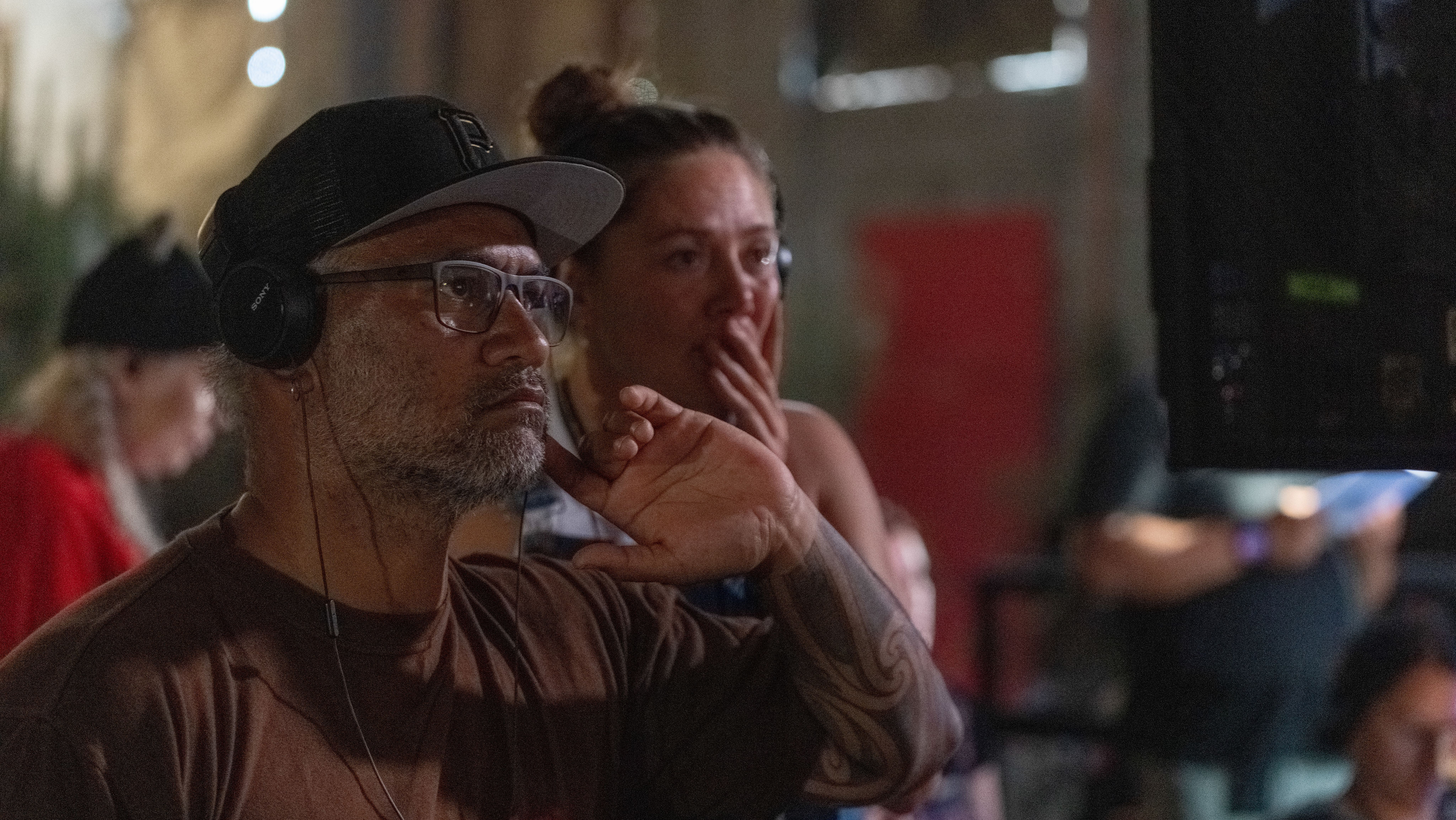
Director Michael Jonathan and Actors coach Bree Peters. Photo/Supplied
No matter how you interpret the themes of the film, Fernandez says the fight to thrive continues.
“Battle on, and on, and on. That’s what it means to me.”
And Jonathan adds, “I mean we do it everyday. The impact that happened from 1864 and all those other pakanga before that, Ruapekapeka, Pukehinahina (Gate Pā), Rangiriri, Taranaki as well, all those pakanga, we live in impact and ka whawhai tonu ia rā, ia rā (everyday).
“We have to. But when’s that going to stop?”
Ka Whawhai Tonu releases in cinemas nationwide, 27 June.
Watch the full interview with Director Mike Jonathan and lead actor Paku Fernandez below.


